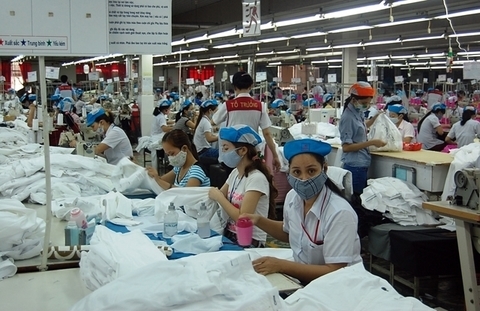The Gioi Di Dong and FPT, two of three biggest hi-tech product distributors, will bear little impact from the ban on Huawei because Huawei products account for 4-6 percent of total revenue, while Digiworld will actually benefit, according to VnDirect Securities.v

The smartphone market share in 2018
Huawei’s smartphone products accounted for about 4 percent of Vietnamese market share, or VND2.65 trillion in 2018. The strength of the Chinese phone brand is not too high and people will shift to use other mid-end brands.
For The Gioi Di Dong and FPT Retail, the sales of Huawei products account for 4-6 percent of their total sales. Since there are a lot of alternative products, the ban on Huawei won’t lead to a sharp fall in the retailers’ revenue.
However, both of them face risk from inventories, and the sale of Huawei products on installment.
|
Huawei’s smartphone products accounted for about 4 percent of Vietnamese market share, or VND2.65 trillion in 2018. The strength of the Chinese phone brand is not too high and people will shift to use other mid-end brands. |
There are two major scenarios. First, Huawei and partners will share the costs to deal with inventory by slashing selling prices and running sale promotion programs. Second, the Chinese smartphone manufacturers will buy back all the inventory from retailers.
The second scenario once occurred when Samsung bought back all Galaxy Note 7s at prices equal to the retail prices after the battery trouble with the flagship model.
Both distributors are awaiting final decision from Huawei to find the best solutions.
There is a third scenario in which the ban on Huawei lasts for a long time and China offers no support to partners.
If this happens, The Gioi Di Dong will have to make provision of VND110 billion for the consignments it is distributing, while FPT Retail VND40 billion.
The figures about provisioning are 3.8 percent and 11.5 percent of net profit of The Gioi Di Dong and FPT Retail, respectively, in 2018.
Meanwhile, Digiworld, the third largest mobile phone distributor, is believed to benefit from the ban on Huawei. The retail chain does not distribute Huawei products, but mostly sells Nokia and Xiaomi products.
The decrease in Huawei sales in Vietnam would help boost the sales of Nokia and Xiaomi, considered two good alternatives for Huawei.
As for the world market, the problem of Huawei, the world’s second largest mobile phone manufacturer, with 14 percent of global market share in 2018, will give opportunities to other manufacturers, especially Xiaomi and Oppo, with similar technologies and price policies, to fill in the gap.
Mai Lan

US-China trade war increases risk of trade deficit for Vietnam
The US-China trade war and Chinese yuan devaluation have increased the risk of a widening trade gap, with more imports from China flowing to Vietnam.

Vietnamese businesses fear fallout of US-China trade war
Many Vietnamese enterprises are keeping a close eye on the escalating US-China trade war and have expressed concern about its possible adverse impact on their business.
 Analysts of VnDirect Securities believe that the ban would have big impact on the Chinese telecom equipment manufacturer, but the Vietnamese smartphone market will not be affected much.
Analysts of VnDirect Securities believe that the ban would have big impact on the Chinese telecom equipment manufacturer, but the Vietnamese smartphone market will not be affected much.